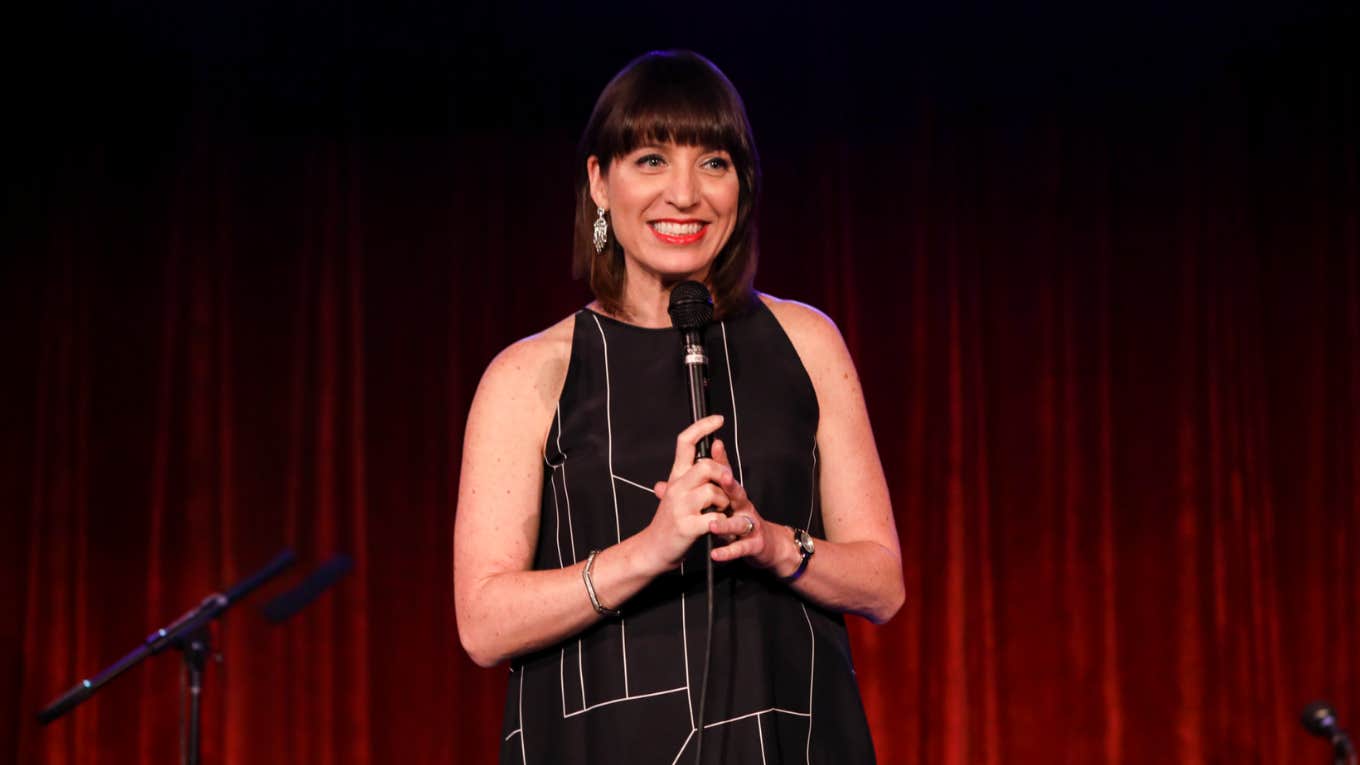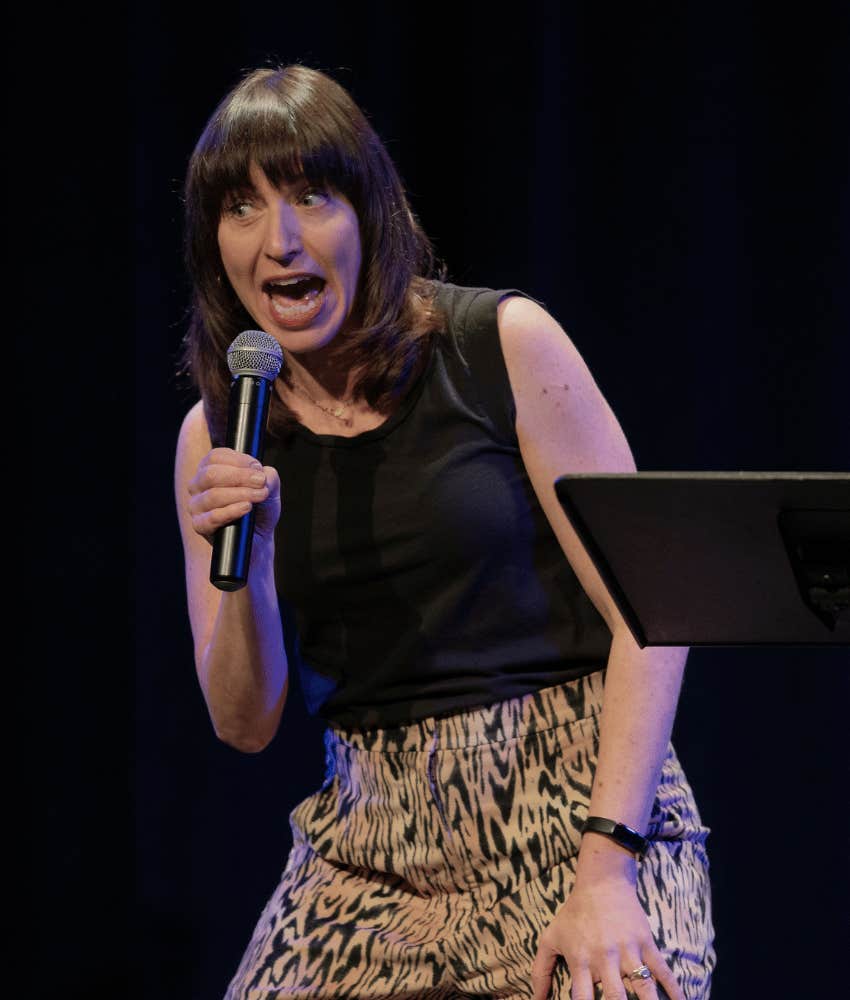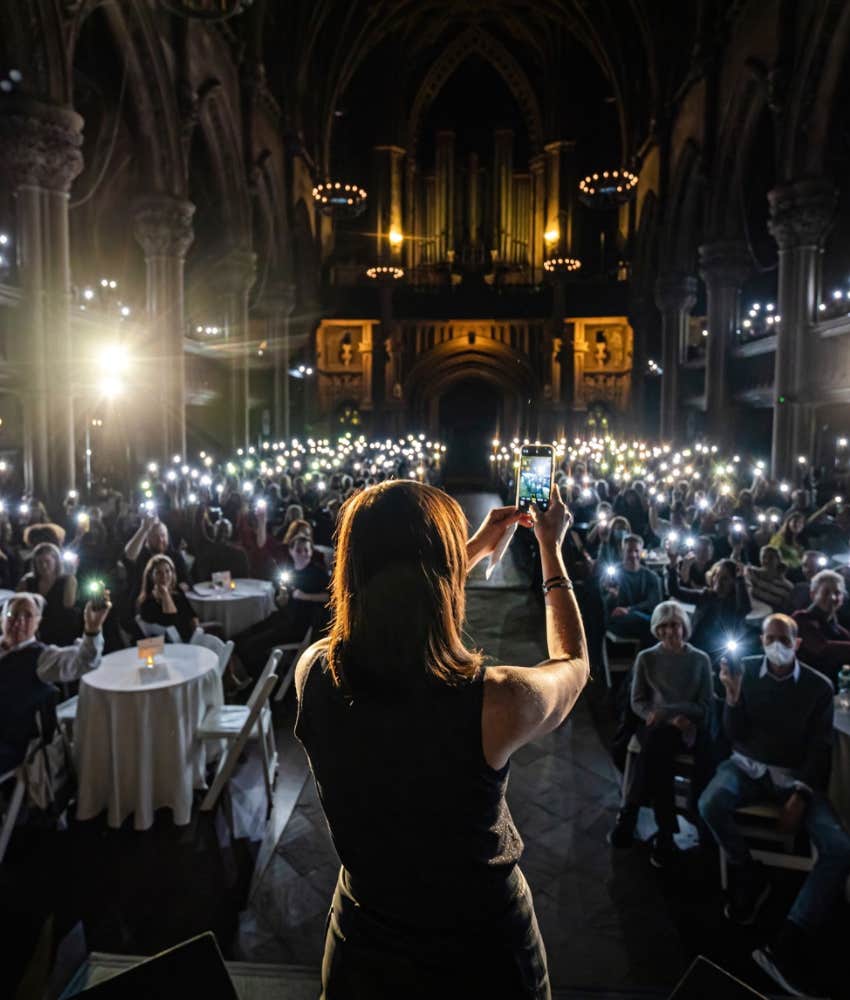'I Was A Bad Survivor' — NPR Host Ophira Eisenberg On The Pressure To Be A 'Good' Breast Cancer Patient
Other women need to know that they can be a bad survivor, too.
 OphiraEisenberg.com
OphiraEisenberg.com In the USA, 1 in 8 women will develop breast cancer. Comedian Ophira Eisenberg, best known as the host of NPR's long-running quiz show, Ask Me Another, is one of those. Now, the comedian wants to bust open the myth that people battling cancer should do it with a smile and an uplifting Instagram post — especially if they're doing it to make others feel better.
During a candid and heartfelt conversation on Andrea Miller's Getting Open podcast, Eisenberg, who now hosts the podcast Parenting is a Joke, opened up about her experience with breast cancer as well as what it was like to experience miscarriage while in the public eye, and how these challenges (eventually) made their way into her iconic comedy career. What she said is a message for anyone in the middle of serious life turbulence.
Ophira Eisenberg refused to be a 'good' breast cancer patient
It can be hard to find levity and positivity in brutal life moments like losing a loved one or battling a serious medical condition. Despite her quick humor and knack for making people laugh, Eisenberg admitted that while she was battling breast cancer, she felt incredibly powerless over her own narrative, sharing that at this point in her life, she's able to incorporate that traumatic period in her life through the creative outlets that she does — but it wasn't always like that.
"I just recently was talking about how I was a bad survivor," Eisenberg said. "I was not a 'smile on my face while I was going through everything' survivor. [I was] not even nice to a lot of the surgeons, nurses, etc, [who] were taking care of me. Sometimes I was sharp and mean with them because I was so full of rage and fear."
Eisenberg explained that she's noticed how much pressure there is for women to be "good survivors" and to go through such a devastating experience with their heads up high while also practicing grace and patience. But that expectation isn't fair in the slightest, especially when battling breast cancer can be such a life-altering experience that doesn't always have a happy ending.
"While I was going through it, I felt all of these things and I thought, 'There's gotta be other people than me that feel this way.' There's gotta be other people that are like, 'Do not tell me to have a positive attitude right now. That is not where I'm at.'"
Now, she wants other women to know that they don't have to post smiling selfies during their chemo treatments or share positive affirmations if that's not how they're feeling.
 Courtesy of Ophira Eisenberg
Courtesy of Ophira Eisenberg
Eisenberg noticed that the 'emotional connection' to her experience came after she was brutally honest about not being the 'perfect survivor.'
It took quite some time before Eisenberg was able to find comfort in incorporating her cancer journey and experience into some of her comedy routine and creative endeavors. Instead of softening the story and having a "phoenix rising from the ashes" moment, she chose to be truthful about her attitude and less-than-perfect survivor mentality.
"I learned personally that when I was able to actually go, 'I'm going to write about me not being great,' and me having thoughts that I wasn't proud of ... those are the moments that afterward, people go, 'Oh my God.' That is the connection," Eisenberg recalled. "The emotional connection is when we're talking about the real crux of our struggle."
Not every hardship is conquered beautifully and with grace. It's sometimes messy, but those moments are the most relatable because of how honestly they are portrayed. Even talking about getting mammograms, Eisenberg admitted that when she sees women cheerfully at their appointments on social media reminding other women to get a preventative check, she feels gratitude for them, but for her, those appointments fill her with an immense amount of anxiety because of the traumatic events of fighting breast cancer.
"It feels like a torture chamber," she remarked. "It's a wild mindset and this is why I don't take a photo of myself in the room."
 Ophira Eisenberg performing at The Moth, courtesy of Eisenberg
Ophira Eisenberg performing at The Moth, courtesy of Eisenberg
Miller emphasized how common it is for people to feel apprehensive about discussing scary moments.
"I have friends that are breast cancer survivors and there's lots of hugging, high-fiving, and cheering ... but there is that scary part that you're being honest about," Miller said, noting that it's not healthy to expect people who are struggling to put on a show for others.
Eisenberg agreed, pointing out that the struggle doesn't just end with remission. For her, mammograms and other screenings are full of anxiety, even though other survivors may celebrate each time they get screened.
Eisenberg also notes that the fallout of needing to appear strong and positive is that she didn't really tell a lot of people about her sickness. Looking back, she explained that the decision to keep it a secret was also because she, herself, struggled to come to terms with her new reality.
"I was so distraught and I didn't want to be a downer," Eisenberg said, adding that she didn't want to have to battle invasive questions and people's own fears reflecting back onto her. But now, she insists that when going through something as terrifying as that, you need a village of people to support you.
There is no such thing as being a "perfect" anything, much less being a perfect cancer patient and survivor. The only thing that can make it even a bit bearable, concludes Eisenberg, is having a corner of people who understand you and who will be there for you during the ups and downs.
Nia Tipton is a Chicago-based entertainment, news, and lifestyle writer whose work delves into modern-day issues and experiences.

